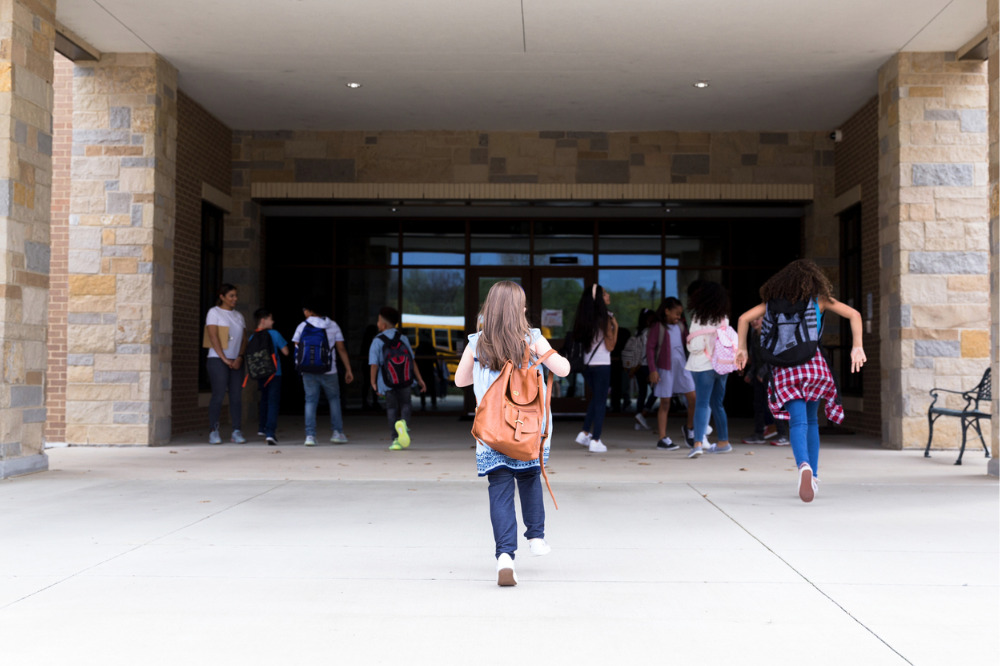
Victoria’s principals will soon have the power to ban aggressive parents from school grounds, following the passage of a bill in the state’s parliament.
The ‘Education and Training Reform Amendment (Protection of School Communities) Bill 2021’, passed on Tuesday, empowers authorised staff to issue School Community Safety Orders to parents, carers and other people who engage in harmful, threatening or abusive behaviour. Those who refuse to comply can be referred to a Magistrate's Court.
“No one should be threatened or intimidated at work or at school – that’s why we’re introducing these new laws to protect staff, students and their families,” Minister Merlino said.
“These vital new measures will empower our senior school leaders to take necessary actions when inappropriate behaviour is being levelled towards people in the school community”.
While Victorian principals were already able to issue a ‘trespass order’ under warranted circumstances, the new laws will be more sweeping and apply to parents or carers who communicate with school staff in an abusive or threatening way, dramatically raising the stakes for online ‘trolls’ and ‘keyboard warriors’.
To assist schools in the lead up to the scheme’s implementation, the Department will provide Ministerial Guidelines, training and resources for authorised persons to ensure their new powers “are used effectively and appropriately” and to avoid any increases to principal workload.
A deterrent for some, not so much for others
In the 17 years that she has worked at her current school, Meadowglen Primary School principal, Loretta Piazza, has issued three trespass orders banning entry onto school premises for twelve months.
“Each time I agonised over this decision because I knew it would ultimately destroy any relationship I had with these families,” Piazza told The Educator.
“A fourteen-day suspension appears to be a better option, providing principals take the brave step and follow through”.
Piazza said the “keyboard warriors” have traditionally been more difficult to manage as these parents can significantly damage a school’s reputation.
“The new legislation will certainly help in some instances, but will it stop the inappropriate comments on social media? Probably not completely,” se said.
“Much of the social media activity occurs after hours and away from school premises. Not able to enter the school for fourteen days may not be much of a deterrent for these people”.
Piazza said once the government’s measure becomes widely publicised, it’s likely to act as a deterrent for some, but not so much for others.
“Sadly, there is a significant element in the community for which this legislation will have minimal effect because if they feel they have been treated unfairly by the school, no law will take away their anger”.
‘A short-term fix to a long-term problem’
Berwick Lodge Primary School principal, Henry Grossek, says that while the new law lends itself well to discussing the deeper issues between educators and parents, it is “a short-term measure trying to address a long-term problem”.
“It sends a message of support and is symbolically very powerful. It makes clear that violent and aggressive behaviour is unacceptable. That of itself is good and will moderate behaviour to some extent, but the devil is always in the detail,” Grossek told The Educator.
“For example, police issue AVOs in disputes that have turned dangerous, but now that principals have these expanded powers, it could potentially escalate already precarious situations”.
Like Piazza, Grossek believes that the new laws may not be an effective deterrent for some parents and carers.
“For some parents, that will be enough, but there are those who are unstable need professional counselling, and it’s these people I worry about when it comes to principals trying to implement these guidelines,” he said.
“It doesn’t solve the problem, it merely shifts it outside the school gates, and could actually work against principals. After all, they’re going to be the ones communicating with parents and carers when implementing these rules – not the police”.
Grossek said whether it is a principal or a police officer that bans the parent, the bottom line is that principals still have that person’s children in their care.
“This means there has to be some mediation, or a circuit-breaker, because banning a parent might not work in the child’s best interest,” he said.
“Me banning the parent could get the problem off the school grounds but doesn’t solve a big issue for schools, and that’s the disconnect that happens between parents and schools over children, who are the biggest emotional trigger for parents”.
Grossek said if the new law will prove itself successful if it gets communities to address the deeper issues that underly aggressive behaviour.
“Prevention better than cure, and it’s the first step to a cure, but it’s certainly not prevention”.


